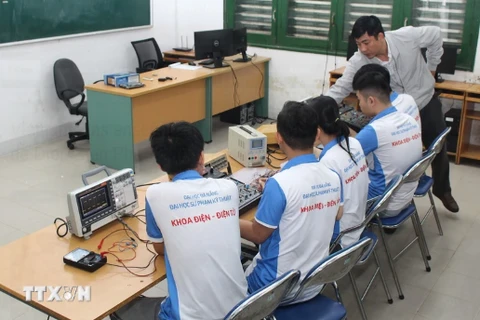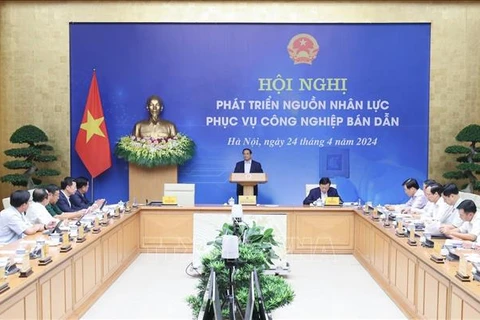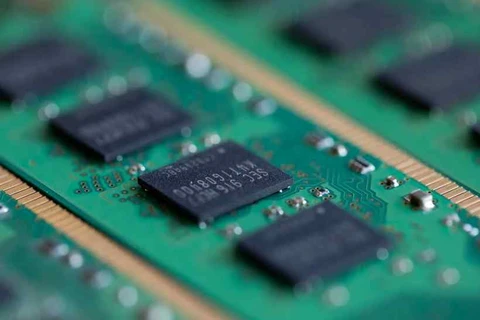
Hanoi (VNA) – Vietnam is making a concerted effort to position itself as a major player in the global hi-tech landscape, with focus on attracting foreign investment in the burgeoning semiconductor industry, Deputy Minister of Planning and Investment Nguyen Thanh Trung told a press conference in Hanoi on May 4.
Trung emphasised the Government's unwavering commitment to developing the semiconductor, chip and electronics industries. This commitment is resonating with foreign corporations, who recognise Vietnam's strategic positioning amid a shifting global geopolitical and economic climate, along with the restructuring of global supply chains.
To capitalise on this opportunity, Vietnam is actively refining its legal framework, policies and business environment. A key aspect of this strategy is the building of preferential investment mechanisms specifically designed to attract technology corporations, particularly those specialising in chip and semiconductor production. These projects enjoy the highest level of incentives available under the Vietnamese law.
Recognising the infrastructure demands of the semiconductor industry, Vietnam is also investing heavily in upgrades. Transportation infrastructure, especially road networks, is undergoing significant improvements. The recently-approved National Power Plan VIII prioritises stable electricity supply to investment projects, with focus on sustainable energy development.
Vietnam is strategically cultivating hi-tech zones to provide a fertile ground for the industry's growth. The National Innovation Centre exemplifies this approach. This centre boasts state-of-the-art infrastructure, coupled with favourable policies and comprehensive support systems. These zones offer a compelling proposition for companies seeking a launchpad for their Vietnamese operations, he said.
Talent development is another critical pillar of Vietnam's strategy. The country boasts a network of reputable research and training institutions equipped to deliver a skilled workforce for the semiconductor industry. Leading universities like Vietnam National University (Hanoi and Ho Chi Minh City), the University of Da Nang, and the Hanoi University of Science and Technology are at the forefront of this effort.
Furthermore, major Vietnamese enterprises like Viettel, VNPT, FPT, and CMC have expressed their willingness to collaborate in propelling the sector forward. The Ministry of Planning and Investment is actively building a robust human resource development plan specifically tailored to the semiconductor industry. This plan aims to create a pool of 50,000 highly qualified personnel by 2030, ensuring a steady stream of talent to meet industry demands.

According to him, Vietnam's efforts are already yielding positive results. Major hi-tech corporations are increasingly turning their attention toward the country. Notable examples include Intel and Amkor in the packaging and testing sector, including Marvell, Qorvo, and Qualcomm in design, and Synopsys and Cadence in the supply of semiconductor chip design tools.
Recently, an executive from chipmaker NVIDIA paid several visits to Vietnam, paving the way for potential collaboration in artificial intelligence (AI) and semiconductors. This collaboration could encompass the establishment of supercomputing centres in Vietnam, the training of personnel for both AI and semiconductor industries, and the development of an ecosystem that fosters research, development and startups in the AI field.
As Vietnam continues down this path, it is clear that it has high potential to become a hub for not only semiconductor chips but also cutting-edge technologies like AI./.






















